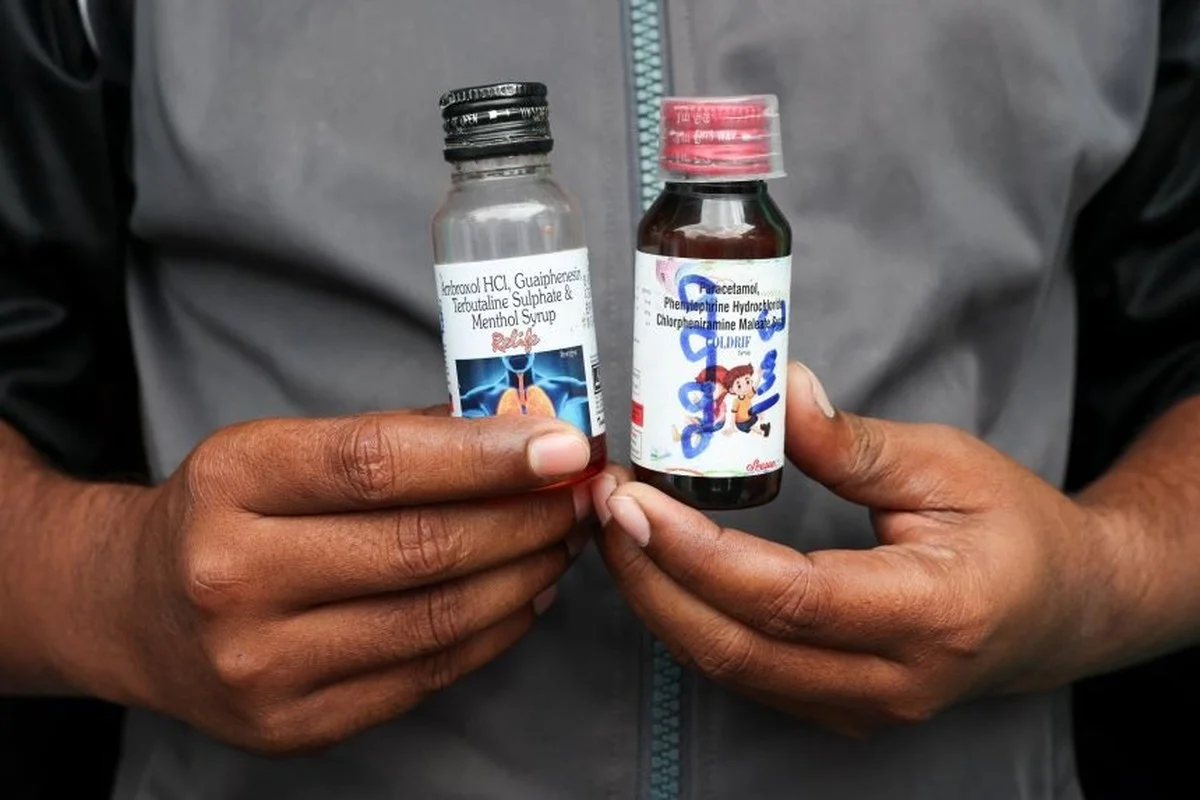14/10/2025
14/10/2025

NEW DELHI, Oct 14: The World Health Organization (WHO) on Monday issued a health advisory warning of three contaminated cough syrups identified in India, urging countries to monitor, detect, and report any presence of the affected products in their pharmaceutical supply chains.
According to the advisory, the syrups — Coldrif (manufactured by Sresan Pharmaceutical), Respifresh TR (by Rednex Pharmaceuticals), and ReLife (by Shape Pharma) — were found to contain dangerously high levels of diethylene glycol, a toxic chemical used in industrial solvents and antifreeze.
The WHO said the toxic substance was present in concentrations nearly 500 times the permissible limit, posing “significant health risks,” including severe and potentially life-threatening illness, particularly in children.
The contaminated medications are linked to the recent deaths of several children under the age of five in Chhindwara district, located in India’s central state of Madhya Pradesh. India’s Central Drugs Standard Control Organization (CDSCO) confirmed to WHO that the children had reportedly consumed the syrups before falling ill.
The UN health agency has called on national regulatory authorities to increase vigilance, test suspect products, and take immediate action to protect public health. “Countries should notify WHO immediately if these substandard products are found in their markets,” the advisory stated.
This is the latest in a series of warnings issued by WHO about contaminated medicines originating in India — a country known for its large pharmaceutical manufacturing sector. The agency previously raised alarms over similar incidents involving tainted syrups in Gambia, Uzbekistan, and Cameroon in the past two years.
WHO reiterated the importance of stringent quality control, regulatory oversight, and international cooperation to prevent further tragedies.
India’s health ministry has yet to issue an official public statement regarding the latest incident.


